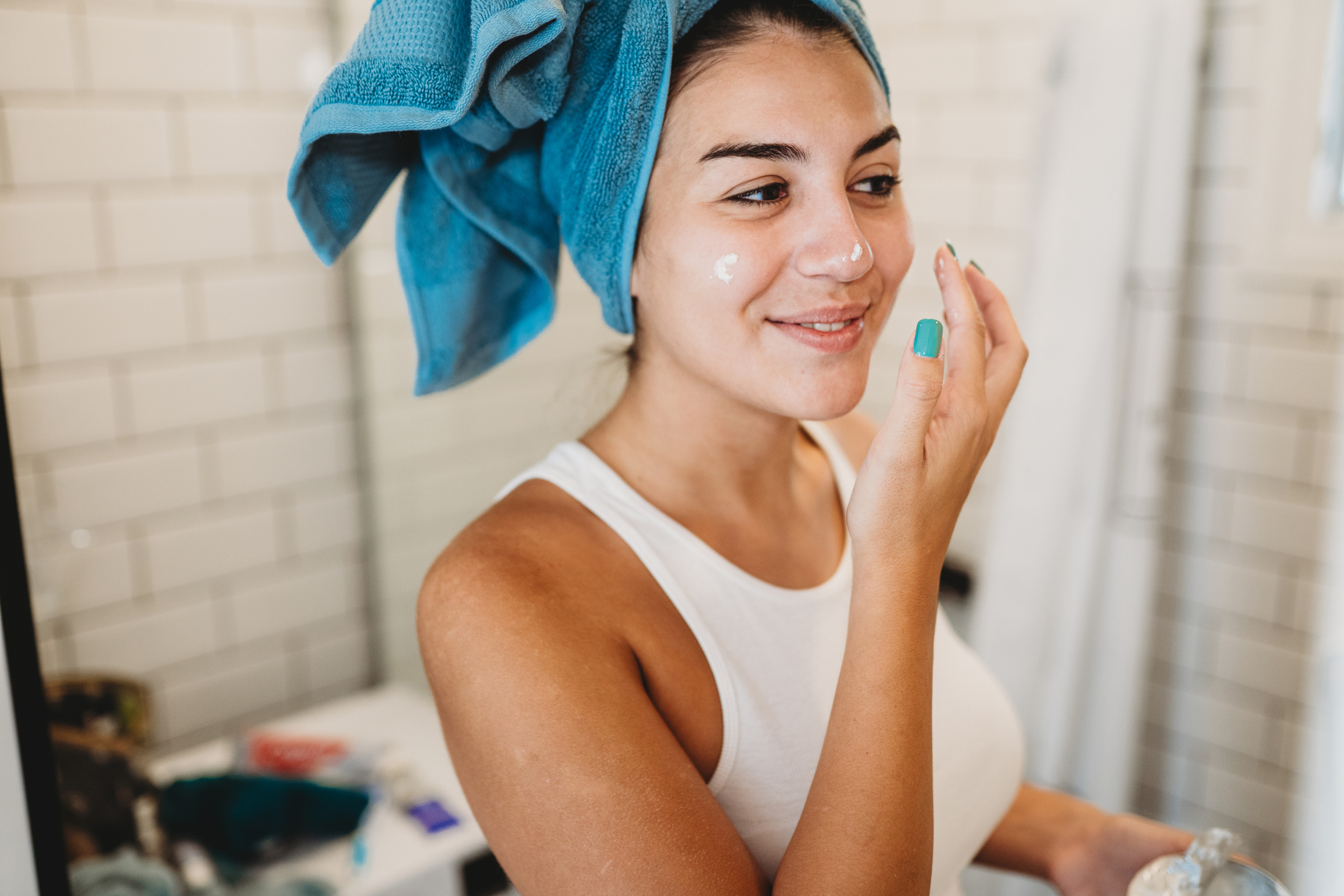Brand value guide: Make your brand irresistible
Boost your brand’s impact with SKIM’s 5-step guide to irresistible growth. Download now to unlock strategic success!

The skincare market is becoming increasingly saturated with a multitude of new products emerging daily. This makes it challenging to differentiate your skincare branding and justify premium pricing. Today’s repertoire-based consumers seek more than just product efficacy; they desire a connection with brands that align to their personal values and aspirations.
To help skincare brands navigate this landscape and increase brand value, SKIM’s TrendsLab has conducted extensive qualitative and quantitative research to gain a deeper understanding of consumer motivations and the factors that ultimately drive their skincare purchasing decisions.
In this article, we explore these insights and provide specific, actionable strategies based on consumer research to help your brand communication and skincare brand marketing stand out and command premium pricing.
Our research shows that a remarkable 50-60% of skincare consumers remain loyal to their favorite brands. This highlights the importance of building strong skincare branding and fostering emotional connections. Interestingly, loyalty was even higher among Gen Z (60%) than older generations (50%), emphasizing the importance of resonating with younger audiences.
Building a skincare brand that consumers trust and identify with can lead to repeat purchases, positive word-of-mouth, and a willingness to pay a premium for your products.

Brand momentum, or the ability to stay relevant and set the agenda in the industry, heavily influences purchase decisions. Our research shows that the interplay between brand momentum and innovation significantly impacts consumers’ willingness to pay a premium, even more so than brand prestige alone. A 10% advantage in innovation can drive almost double the willingness to pay more compared to a 10% advantage in brand ‘premiumness’ (3.2%).
However, striking the right balance is crucial. While momentum is important, consumers still seek products they can trust. This makes it important to also clearly communicate the benefits your skincare brand marketing delivers through innovations.
The tension between trust and excitement fuels two key trends we’re observing in the skincare market:
Younger indie brands are rapidly gaining market share. These brands are characterized by:

Trust forms the foundation of successful skincare branding. Modern consumers research ingredients, manufacturing processes, and company practices before committing to a purchase.
Transparency about your formulations, ingredient sourcing, and testing methods demonstrates confidence in your products and builds consumer trust. Effective ways to communicate skincare brand values include:
Ethical considerations like cruelty-free testing, fair trade sourcing, and environmental impact are no longer optional—they’re essential skincare brand values that inform purchasing decisions. Brands that authentically communicate and demonstrate their commitment to responsible practices create deeper connections with today’s values-driven consumers.
Remember, today’s consumers seek more than just products; they seek connections. By understanding and leveraging these insights, your skincare brand values can thrive and grow in this evolving market.
The power of social influence cannot be overstated in today’s digital landscape. Successful skincare brand marketing strategies incorporate both macro and micro-influencers to reach different audience segments. While celebrity endorsements create broad awareness, partnerships with dermatologists and skincare professionals build credibility, and micro-influencers often deliver higher engagement rates through their authentic, niche communities.
User-generated content provides powerful social proof, showcasing real results that resonate with potential customers. Smart skincare branding strategies encourage customers to share their experiences through branded hashtags and incentivized review programs, creating a continuous stream of authentic content that builds trust and drives conversions.
Effective skincare branding requires messaging that genuinely resonates with your specific audience segments. By factoring in distinct skincare concerns across different demographics and personalizing your communication accordingly, you create immediate relevance with consumers. Educational content that addresses common questions and misconceptions establishes your brand as a trusted authority in the space.
Meanwhile, compelling storytelling that highlights your brand’s origin, mission, and unique values creates emotional connections that transcend product features alone. These authentic narratives foster deeper brand loyalty in an increasingly competitive skincare landscape, transforming one-time purchasers into long-term advocates who feel personally aligned with your brand’s journey and purpose.
Successful skincare brand marketing requires continuous measurement and optimization. Consider tracking these impactful metrics to evaluate your branding effectiveness:
These insights enable data-driven decision-making, allowing you to refine your skincare branding strategy for maximum impact and ROI.
Explore the TrendsLab skincare insights further directly with Stephen Scales by arranging a live walkthrough of our interactive brand value simulator which demonstrates how a deeper understanding of consumer motivations provides the information you need to maximize conversions and drive sustainable growth.
Skincare brands can differentiate themselves by developing a unique brand identity with clear values, focusing on specific niches or concerns, creating innovative formulations, and building authentic connections with their target audience.vUnderstanding your specific audience’s needs and consistently delivering on your skincare branding promise are key to standing out.
Customer testimonials and reviews serve as powerful social proof that builds trust and credibility. They provide authentic validation of your products’ efficacy, influencing purchasing decisions of potential customers. Reviews also offer valuable insights into customer satisfaction and areas for improvement, helping skincare brand marketing teams refine their products and messaging.
Skincare brands can maintain consistent messaging by developing comprehensive brand guidelines, creating a centralized content calendar, training all team members on brand voice and values, and regularly auditing content across channels. Implementing approval workflows and using templates for different platforms helps ensure cohesive skincare branding while still optimizing content for each channel’s unique requirements.